You are here
New Releases
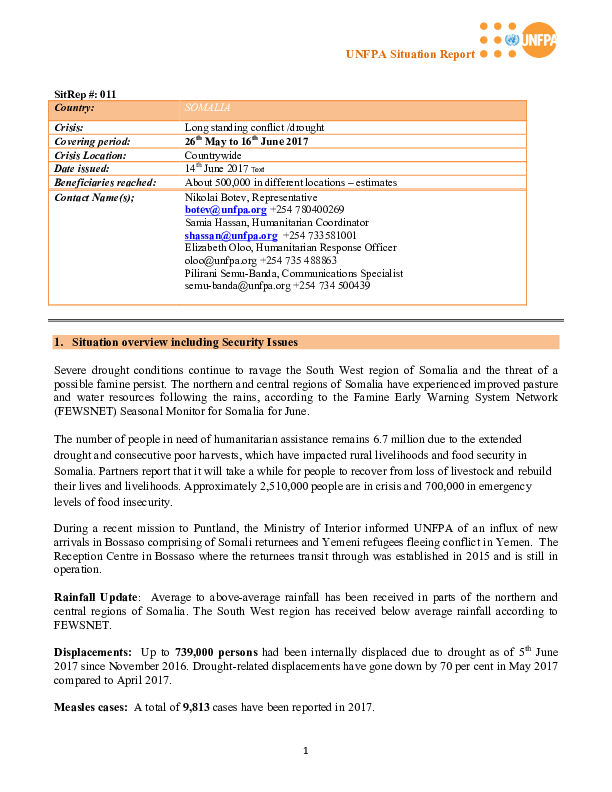
Somalia Situation Report
Severe drought conditions continue to ravage the South West region of Somalia and the threat of a possible famine persist. The northern and central regions of Somalia have experienced improved pasture and water resources following the rains, according to the Famine Early Warning System Network (FEWSNET) Seasonal Monitor for Somalia for June.

REGIONAL SITUATION REPORT FOR SYRIA CRISIS #57
Highlights of UNFPA response to the crisis in Syria:
SYRIAN ARAB REPUBLIC (FROM ALL CHANNELS)
359,433 reproductive health services delivered to Syrians; 9,218 deliveries supported, including 3,504 C-section deliveries; 66,307 family planning services; 19,307 gender-based violence response services provided to Syrians; 16,072 women accessed women safe spaces
IN NEIGHBOURING COUNTRIES AFFECTED BY THE CRISIS
22,538 reproductive health services delivered to Syrian refugees; 6,942 Syrians received family planning services and consultations; 3,983 clients received gender-based violence services; 21,813 Syrian refugees accessed women safe spaces and participated in activities in camps and host communities; 9,526 Syrian refugees reached with gender-based violence related messages
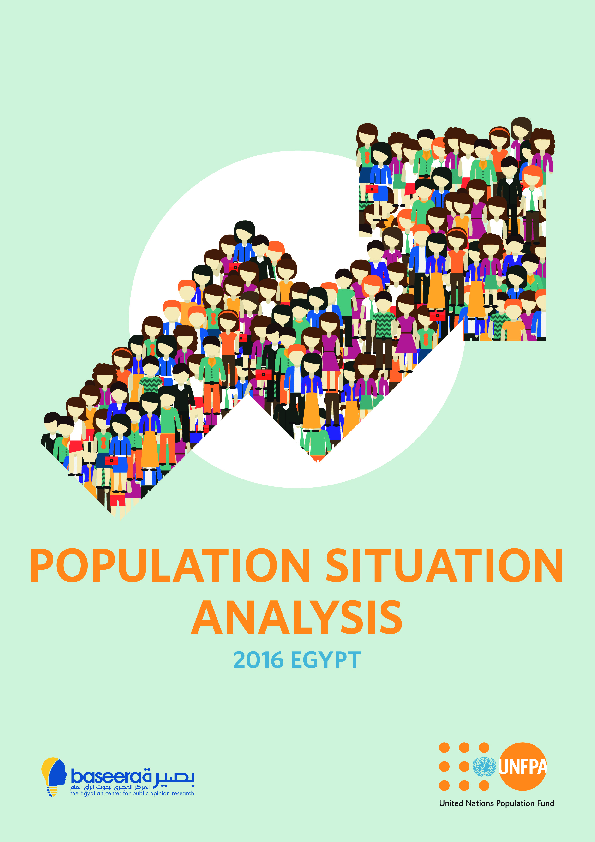
Population Situation Analysis Egypt 2016 Report
Egypt’s population witnessed a dramatic increase during the last decade and was estimated at 92.3 million people by the Central Agency for Public Mobilization and Statistics (CAPMAS) compared to 72 million people in 2006. In absolute terms, the population of Egypt has increased by over 20 million in 10 years. This steady increase threatens to hinder all development efforts with major implications on quality of life and on basic services including education, health, housing and water supply.
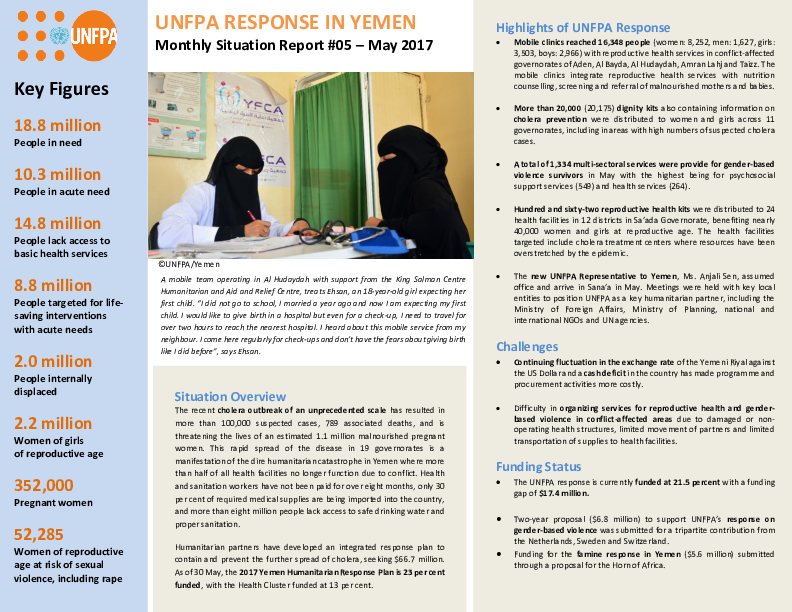
UNFPA RESPONSE IN YEMEN
Situation Overview
The recent cholera outbreak of an unprecedented scale has resulted in more than 100,000 suspected cases, 789 associated deaths, and is threatening the lives of an estimated 1.1 million malnourished pregnant women.
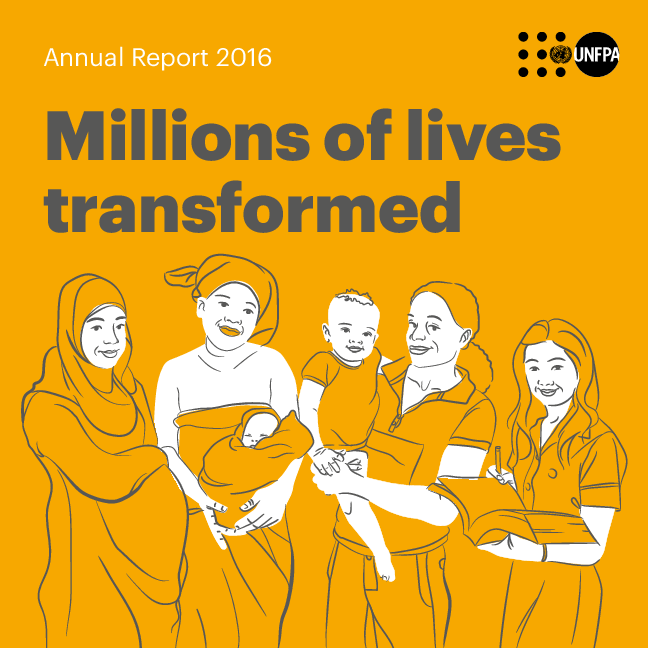
Annual Report 2016: Millions of lives transformed
Now more than ever, we must ensure that the marginalized, the forgotten—the ones often left behind—can exercise their fundamental human right to decide, free of coercion, discrimination and violence, when or how often to have children.
UNFPA, the United Nations Population Fund, is proud to have enabled millions of women of childbearing age to exercise that right and to have helped to nearly double modern contraceptive use worldwide from 36 per cent in 1970 to 64 per cent in 2016.
This annual report shows how funds entrusted to UNFPA have enabled us to protect and promote the health and rights of millions of women and young people and enable them to realize their full potential.

Regional Report
This report is an attempt to provide a bird’s eye view on situation of legislative tools and frameworks in selected Arab countries with regard to key issues related to reproductive health. Legislative environment is an enabling factor that creates supportive space and mechanisms to effect systemic, societal and individual change. This regional analysis is a starting point that should be built on to develop in depth analyses on the national levels to identify gaps and propose bridging and corrective measures.
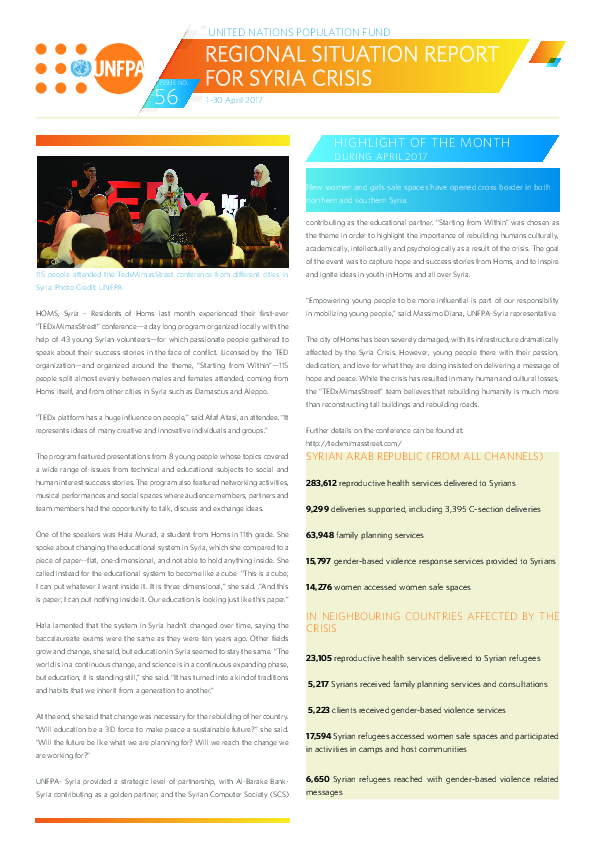
UNFPA Regional Situation Report for Syria Crisis
Highlights of UNFPA response and services provided to Syrians affected by the crisis:
283,612 reproductive health services delivered to Syrians, 9,299 deliveries supported, including 3,395 C-section deliveries, 63,948 family planning services, 15,797 gender-based violence response services provided to Syrians, 14,276 women accessed women safe spaces
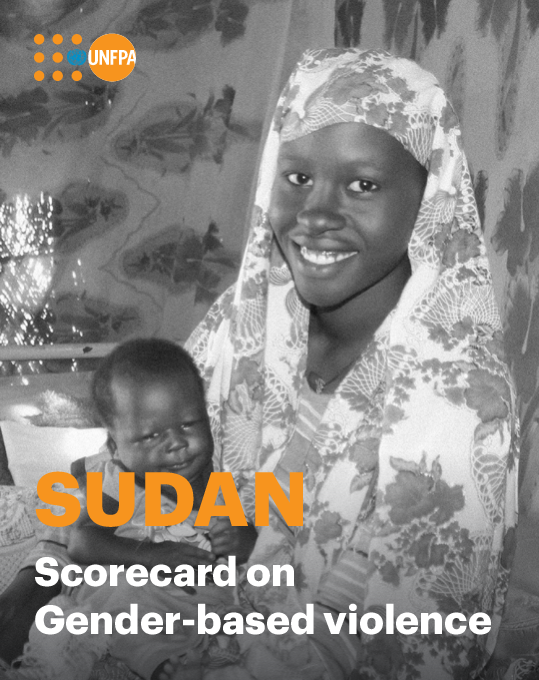
Sudan - fact sheet on gender-based violence
Violence against women and girls is one of the most prevalent human rights violations in the world. Worldwide, an estimated one in three women will experience physical or sexual abuse in her lifetime.
Gender-based violence undermines the health, dignity, security and autonomy of its victims, yet it remains shrouded in a culture of silence.
UNFPA is one of the UN's lead agencies working to further gender equality and women’s empowerment, and to address the physical and emotional consequences of gender-based violence. UNFPA’s programmes offer psychosocial assistance, medical treatment and rape kits to survivors, and promote the right of all women and girls to live free of violence and abuse.
Crisis settings – affecting many Arab countries today - generally increase women’s vulnerability and makes them more likely to become victims of gender-based violence.
Here is a quick fact sheet on gender-based violence in Somalia and UNFPA’s response.
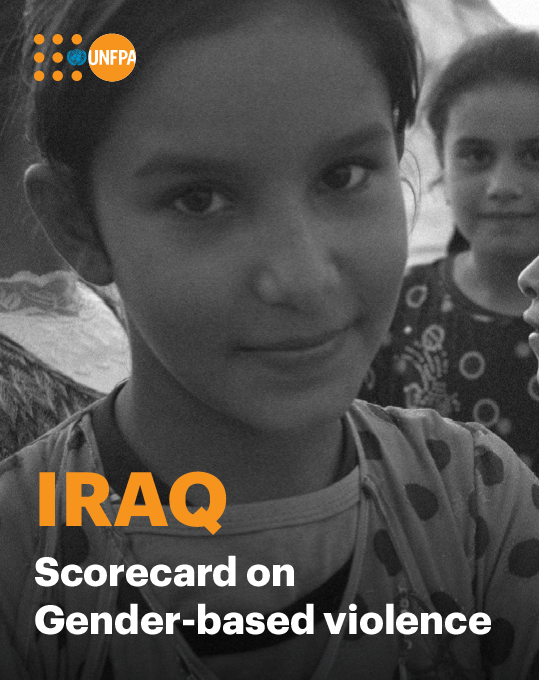
Iraq - fact sheet on gender-based violence
Violence against women and girls is one of the most prevalent human rights violations in the world. Worldwide, an estimated one in three women will experience physical or sexual abuse in her lifetime.
Gender-based violence undermines the health, dignity, security and autonomy of its victims, yet it remains shrouded in a culture of silence.
UNFPA is one of the UN's lead agencies working to further gender equality and women’s empowerment, and to address the physical and emotional consequences of gender-based violence. UNFPA’s programmes offer psychosocial assistance, medical treatment and rape kits to survivors, and promote the right of all women and girls to live free of violence and abuse.
Crisis settings – affecting many Arab countries today - generally increase women’s vulnerability and makes them more likely to become victims of gender-based violence.
Here is a quick fact sheet on gender-based violence in Iraq and UNFPA’s response.
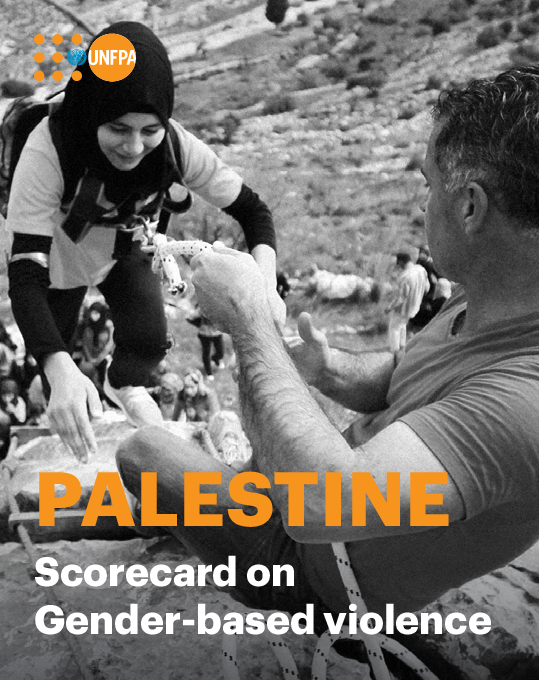
Palestine - fact sheet on gender-based violence
Violence against women and girls is one of the most prevalent human rights violations in the world. Worldwide, an estimated one in three women will experience physical or sexual abuse in her lifetime.
Gender-based violence undermines the health, dignity, security and autonomy of its victims, yet it remains shrouded in a culture of silence.
UNFPA is one of the UN's lead agencies working to further gender equality and women’s empowerment, and to address the physical and emotional consequences of gender-based violence. UNFPA’s programmes offer psychosocial assistance, medical treatment and rape kits to survivors, and promote the right of all women and girls to live free of violence and abuse.
Crisis settings – affecting many Arab countries today - generally increase women’s vulnerability and makes them more likely to become victims of gender-based violence.
Here is a quick fact sheet on gender-based violence in Palestine and UNFPA’s response.